Mongolia
After jumping in our trusty 4WD vehicles and departing the capital, there will be no roads as we cross the wilderness for a little over two weeks, our expert logistical team always ahead of us to set up camp so we can focus on enjoying the magnificent scenery and wildlife on this true remote adventure! We will explore some amazing areas in the taiga and the steppes, from the Gobi Desert to the Altai Mountains in search of Black-billed Capercaillie, Altai Snowcock, Oriental Plover, Relict Gull, Mongolian Ground Jay, Pallas's Sandgrouse, White-throated Bush Chat, and much more.
Next Dates
21 May - 6 June 2026 (17 days)
Leaders:
Chris Venetz
Group Size Limit:
7
Single Room Supplement: $
300 USD
Deposit: $
750 USD
Price: $
5800 USD
6 June - 10 June 2026 (5 days)
Leaders:
Chris Venetz
Group Size Limit:
7
Single Room Supplement: $
100 USD
Deposit: $
750 USD
Price: $
2100 USD
Siberian Crane Extension
21 May - 6 June 2027 (17 days)
Leaders:
Joshua Bergmark
Group Size Limit:
7
Single Room Supplement: $
400 USD
Deposit: $
750 USD
Price: $
5900 USD
Add a Title
Leaders:
Joshua Bergmark
Group Size Limit:
Add a Title
Single Room Supplement: $
TBD
Deposit: $
TBD
Price: $
TBD
28 May - 13 June 2028 (17 days)
Leaders:
Daniel Terrington
Group Size Limit:
7
Single Room Supplement: $
400 USD
Deposit: $
750 USD
Price: $
6100 USD
Add a Title
Leaders:
Daniel Terrington
Group Size Limit:
Add a Title
Single Room Supplement: $
TBD
Deposit: $
TBD
Price: $
TBD
Note that the single room supplement covers both single tents and single yurts, as well as hotel rooms when in Ulaanbaatar.
Accommodation:
The hotel in Ulaanbaatar will be of good quality. When camping we will use high-quality North Face tents, as well as warm sleeping bags and comfortable inflatable mattresses. We will have an assistant to help us set up the tents each night. The only camp assistance group members will be asked to give is erecting and dismantling one’s personal tent (an easy and rapid task) on those rare occasions when the camp crew have limited time or if the weather quickly deteriorates. For a couple of nights, we will stay at Ger camps, using large and comfortable Ger tents with beds, where sharing might be necessary.
Walking difficulty:
Mostly easy, with some moderate uphill walking at Khukh Lake.
Tour cost includes:
All accommodation, main meals, drinking water, overland transport, tips to local drivers and guides, travel permits, entrance fees, and guide fees.
Tour cost excludes:
Flights before and after the tour start/end, visa, travel insurance, tips to tour leaders, laundry, drinks, and other items of a personal nature.


IMPORTANT: Having flexibility during this tour is essential for seeing as many targets as possible. Our itinerary is designed to be modified on the fly, and the exact route we take will depend on our luck with target species, water levels, weather, and seasonal conditions at the time of departure. All key birds and sites will be visited, but not necessarily in the order specified below!
Day 1: The tour starts early this morning at Ulaanbaatar International Airport (UBN). From there, we will drive a short distance to the Tuul River, searching for Azure Tit, Long-tailed Rosefinch, White-crowned Penduline Tit, Amur Falcon, Mandarin Duck (a recent coloniser from the east), and Siberian migrants. In the afternoon we will head towards either Terelij National Park or Mongon, depending on where the capercaillies are most active this year. Night camping.
Day 2: All morning in the forest at the best stakeouts for Black-billed Capercaillie, where we should enjoy superb views of these incredible birds. If conditions are right (ie: cold), we have a good chance of seeing multiple males displaying, often at very close range! Other birds in the area include Black Grouse, Hazel Grouse, Swinhoe’s Snipe, Black Woodpecker, Siberian Rubythroat, Red-flanked Bluetail, Olive-backed Pipit, Pine Bunting, and Black-faced Bunting. If the capercaillies have been seen well enough, then in the afternoon we will drive back towards Ulaanbaatar. If not, then we will stay an extra morning. Night camping.
Day 3: All day driving south to Dalanzadgad in the Gobi desert. We will make stops at small plantations usually packed with migrants and have lunch in the steppe surrounded by the striking Mongolian Lark, while Saker Falcon and Steppe Eagles cruise overhead. Night at a Ger camp.
Day 4: In the early morning, we will visit another steppe area where we should get good views of the uncommon Oriental Plover in full breeding plumage, hopefully doing their amazing petrel-like display flights. We will visit also visit a couple more plantations, before transferring to Zuun Saikhan Mountain in Gobi Gurvan Saikhan National Park, where we will start exploring and looking for Grey-necked Bunting and Godlewski’s Bunting. Night at a Ger Camp.
Day 5: All morning exploring the famous Yolyn Am (Bearded Vulture Gorge). Many resident and summer breeding birds will be seen, including of course Bearded Vulture, plus Himalayan Griffon, Golden Eagle, the near-endemic Kozlov’s Accentor, Brown Accentor, Chinese Beautiful Rosefinch, Wallcreeper, Mongolian Finch, White-winged Snowfinch, and "Altai" Twite. The gorge also acts as a migrant trap, with a stream flowing through the bottom and adjoining rough grass often holding thrushes, warblers and buntings. Afterwards, we will be moving westwards, and crossing stretches of beautiful rocky and bushy steppes, home of the fabulous Mongolian Ground Jay. Night camping.
Day 6: After some early morning birding around camp, and hopefully some more looks at Mongolian Ground Jay, we embark on a long drive through vast desert scenery towards the impresive Khongoryn Els, a huge sytem of sand dunes. We should see plenty of Pallas’s Sandgrous along the way, plus will make stops for Saxaul Sparrow and Asian Desert Warbler. Night at a Ger Camp.
Day 7: Birding early morning around the dunes, and then travelling westwards. Arriving at Kholboolj Lake, an abundance of waterbirds includes Demoiselle Crane and lots of ducks including perhaps Falcated Duck or Baikal Teal. One highlight here will be true wild Mute Swan, amongst Whooper Swan and perhaps a couple of Bewicks’s Swan. We should also start to see some incredible waders in breeding plumage like Asian Dowitcher, Red-necked Stint, and Greater Sand Plover. Night camping.
Day 8: Morning around Kholboolj Lake again before continuing to a nice wetland where we stand good chances of observing Baillon’s Crake, Paddyfield Warbler, Great Reed Warbler, and likely some other passerines. We found a pure male Baer’s Pochard here in 2025, but that was exceptionally lucky. Later in the day we'll arrive at Buuntsagaan Lake, which gives our first chance for the increasingly tricky Relict Gull. Night camping.
Day 9: All day birding at Buuntsagaan Lake, where we will certainly enjoy large numbers of gulls, watching in particular for that much-wanted Relict Gull. This is also an excellent place to see Pallas's Fish Eagle, which summer in the area after having bred south of the Himalayas. During our searches for these two special birds, we may also spot Brown-headed Gull, Little Gull, or Slender-billed Gull amongst hundreds of Mongolian Gull and Greater Black-headed Gull. There will be large numbers of waterfowl, including Bar-headed Goose, Swan Goose, Greylag Goose, while passerines like Greenish Warbler, Hume’s Warbler, Yellow-browed Warbler, and Dusky Warbler often stop over next to our camp. Night camping.
NOTE: We will be adapting our itinerary on the go, and if Relict Gull is still missing at this stage, we will consider driving the extra 1100km loop required to access the the only known breeding lake where the birds are guaranteed.
Day 10: After some final early morning birding at Buuntsagaan, we will start the long drive to Khukh Lake, stopping en-route for more views of breeding Oriental Plover. A nice plantation further along our route sometimes traps some western migrants like Spotted Flycatcher and Ortolan Bunting, usually amongst Siberian migrants such as White’s Thrush, Red-throated Thrush, and Thick-billed Warbler. We shall arrive in good time at Khukh Lake to look for Altai Snowcocks (usually very active late in the day), along with Eversmann’s Redstart, "Eastern" Black Redstart, and Güldenstadt’s Redstart (the latter usually stays very high up in cliffs and has to be scoped). We have more chances for Brown Accentor and our first chance for Altai Accentor, while "Polar" Pallas’s Reed Buntings can be seen in the area. Night camping.
Day 11: Exploring all the altitudinal stretches of the surrounding mountains, today we will search primarily for the rare and poorly-known White-throated Bush Chat (AKA Hodgson's Bush Chat), and the very distinctive and beautiful sushkini form of Asian Rosy Finch. There are of course more chances for the Altai Snowcock, Güldenstädt’s Redstart, and Altai Accentor, plus perhaps Willow Ptarmigan or Rock Ptarmigan. All while surrounded by breeding Blyth’s Pipit, "Blackiston's" Water Pipit, Northern Wheatear, and Isabelline Wheatear. We will be on the lookout for mammals like Grey Wolf or even Wolverine, which are sometimes recorded here. Night camping.
Day 12: After some final birding we will be driving north, stopping in a specific Boreal forest to search primarily for the striking Pallas's Rosefinch. Other possibilities include Oriental Cuckoo, Eurasian Three-toed Woodpecker, more chances for Eversmann’s Redstart, and maybe Ural Owl. Night camping.
Day 13-14-15: Heading eastwards, back towards Ulaanbataar, there are still plenty of things to see and we will make lots of stops. Ugi Lake is a good one, usually holding Black-throated Diver, Stejneger’s Scoter, and Smew. The fringes of Bayan Lake are favoured by White-naped Crane, Brown-cheeked Rail, Eastern Marsh Harrier, and Pale Martin. Passerines could include Paddyfield Warbler, Oriental Reed Warbler, Pere David’s Snowfinch, Pallas’s Grasshopper Warbler, and "Steppe" Pallas’s Reed Bunting (of the vocally and morphologically distinct lydiae subspecies). We will eventually reach the splendid Boreal forest of Terelij National Park on Day 15. One night at a hotel and two nights camping, the order depending on exactly where we choose to go.
Day 16: All morning birding in Terelij, searching for any recently-arrived Chinese Bush Warbler, along with Lanceolated Warbler, Red-throated Thrush, Ural Owl, and more. Siberian Jay and Siberian Tit are present, but very rare at this time of year and not usually seen. In the afternoon we return to Ulaanbaatar for a comfortable night in our hotel in the outskirts of the city.
Day 17: Morning transfers to Ulaanbaatar International Airport (UBN) for international departures.
SIBERIAN CRANE OPTION: Drive further east from Ulaanbataar, where four extra nights will allow us to explore the bird-rich Khurkh Valley. Here, we can expect to see one of the ultimate birds in Asia: Siberian Crane! Chinese Bush Warbler, Japanese Quail, Yellow-breasted Bunting, and more exciting migrants are also possible. Three nights camping, then final night at hotel in Ulaanbataar before international flights on Day 21.

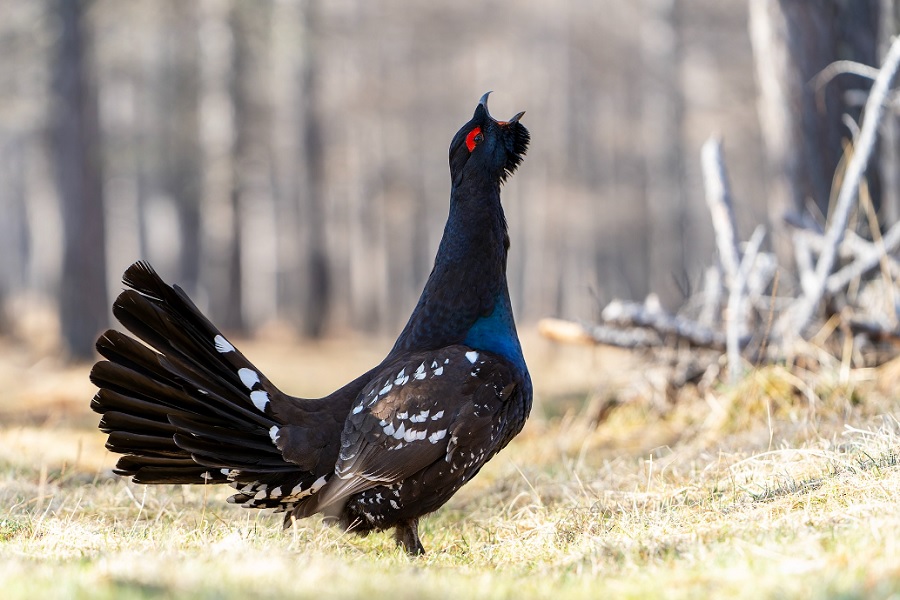

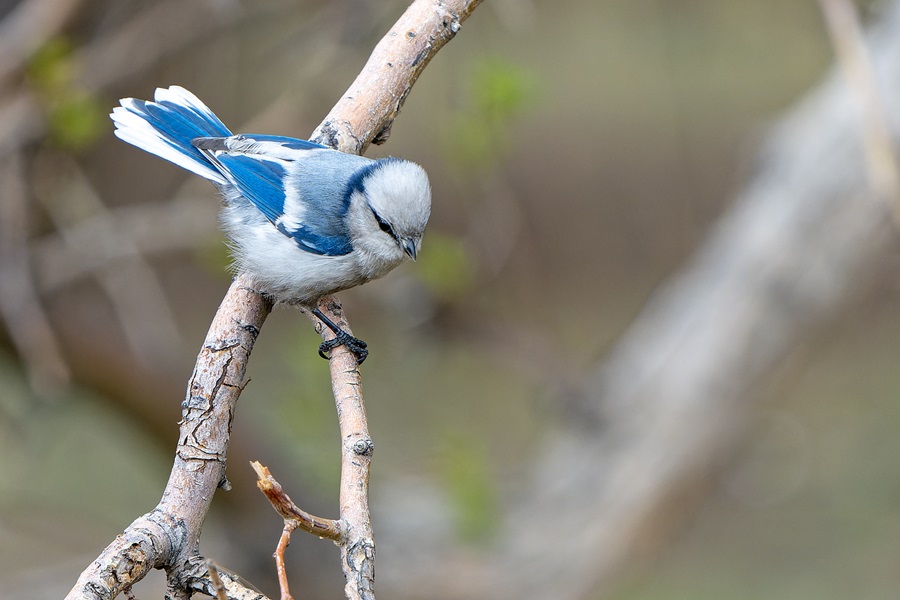

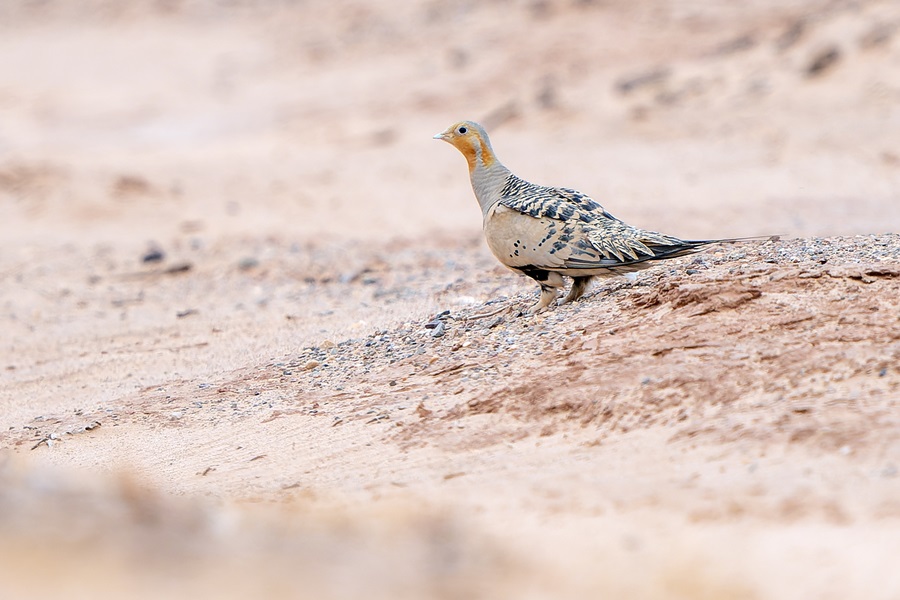

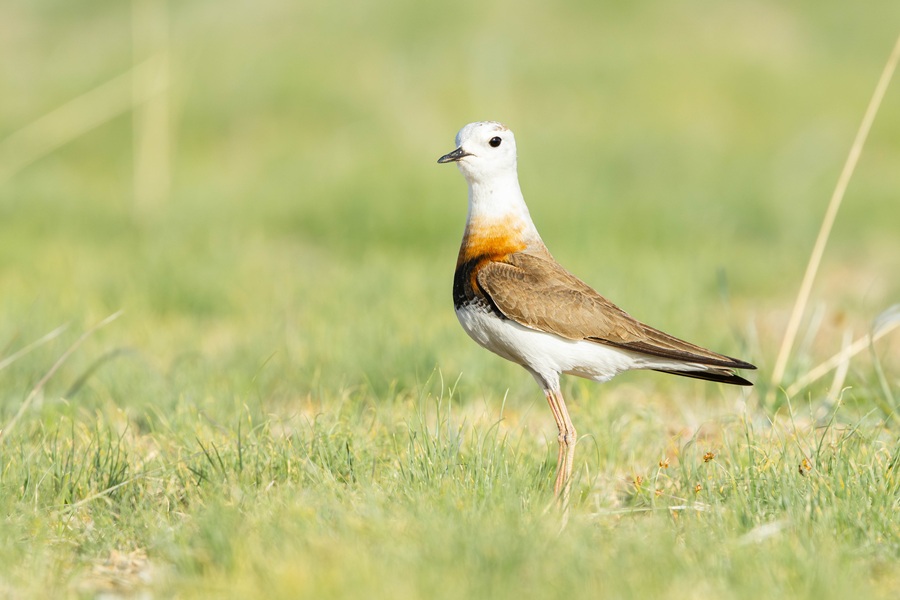

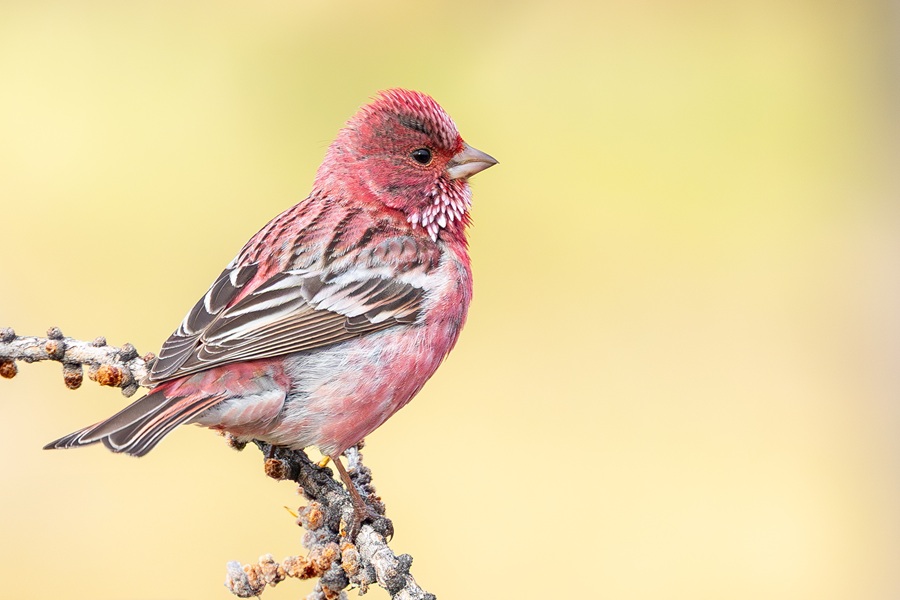

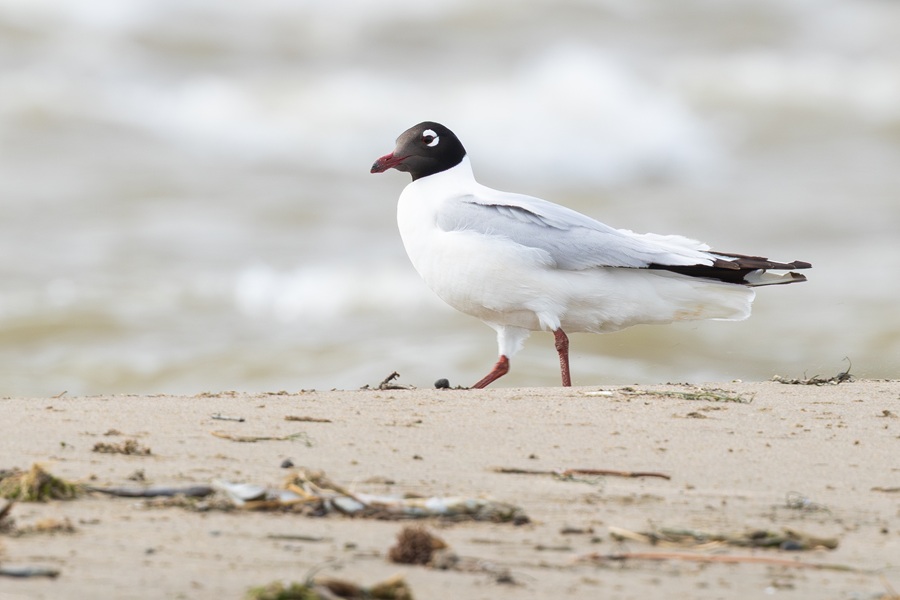

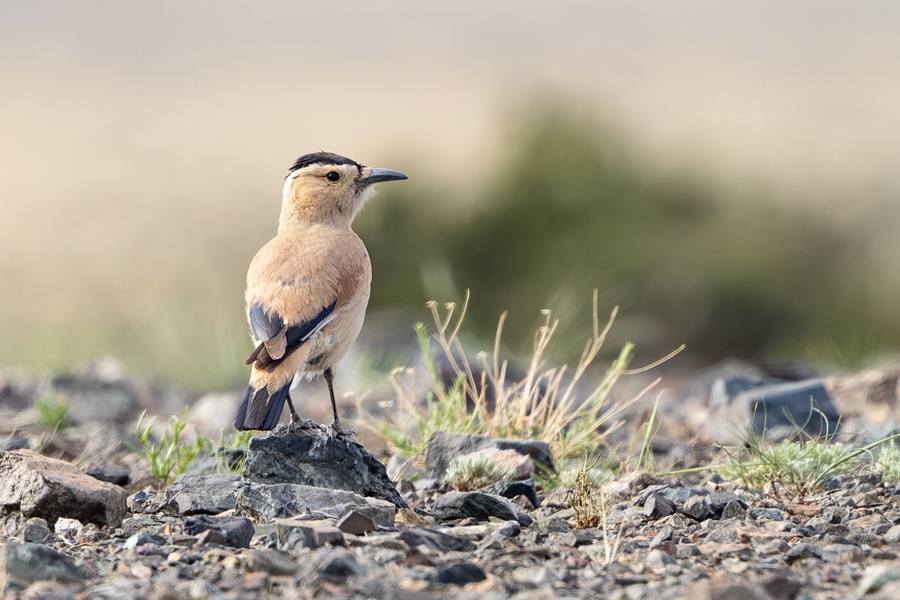

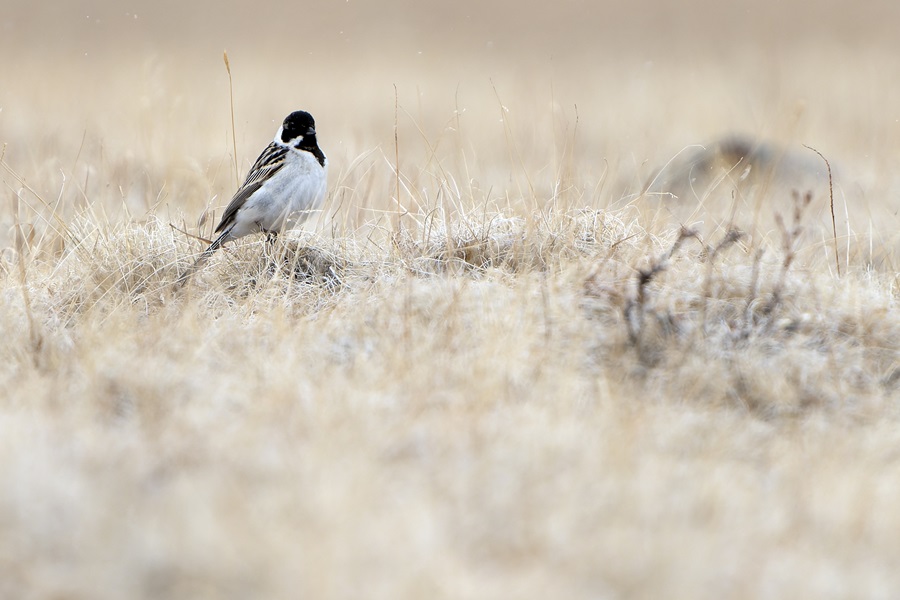

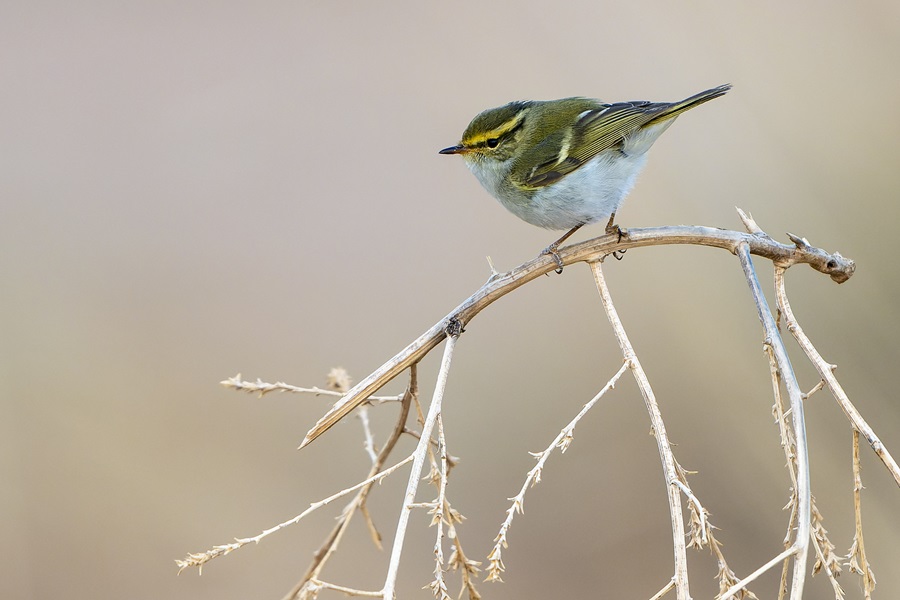

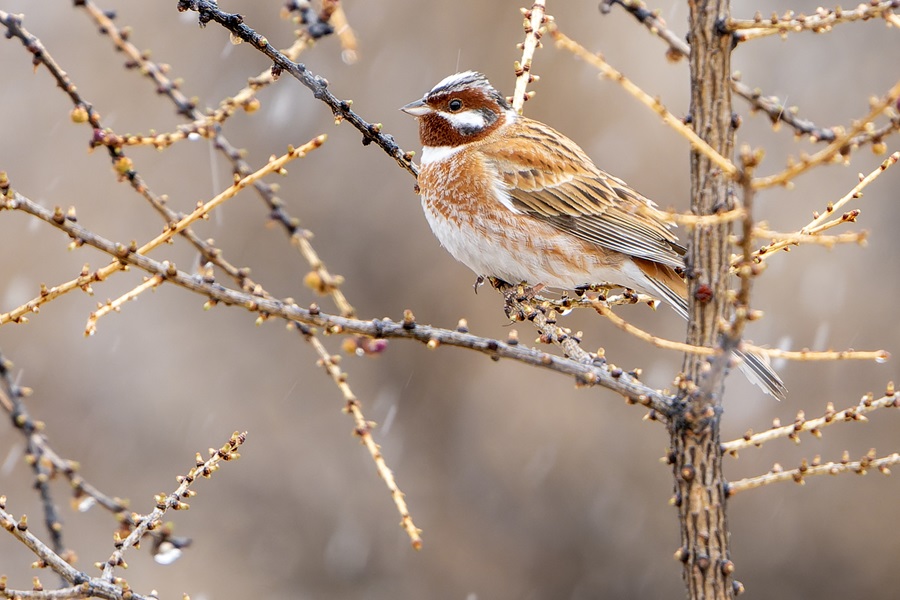

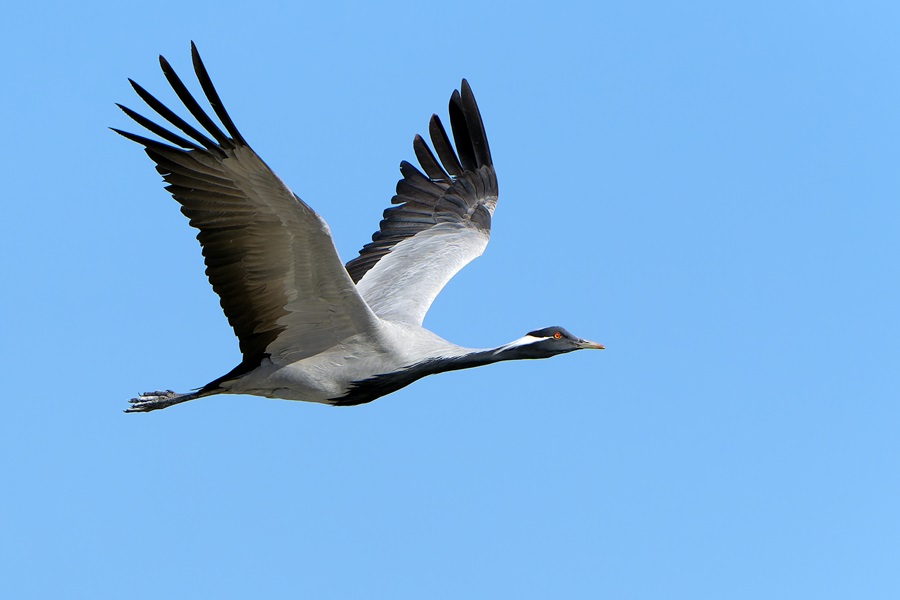

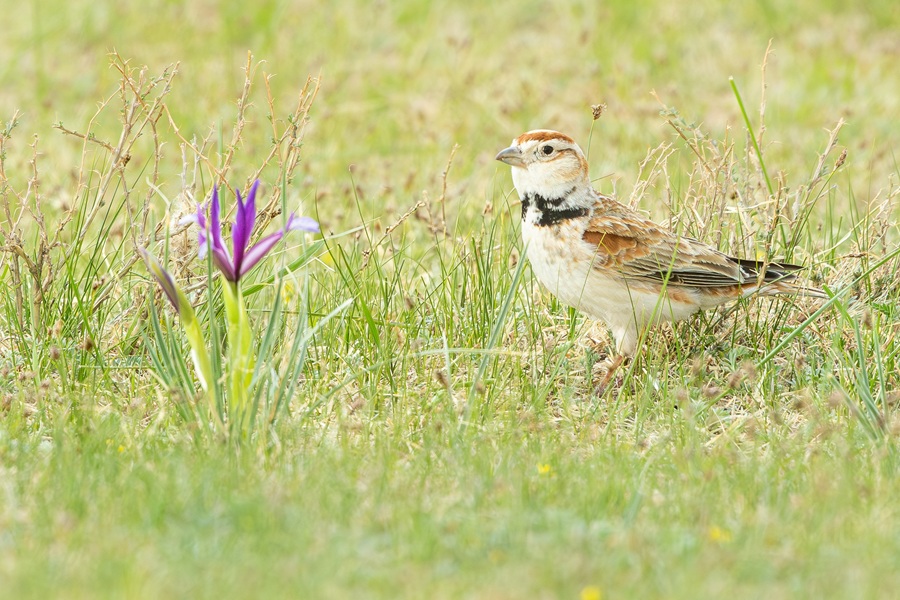

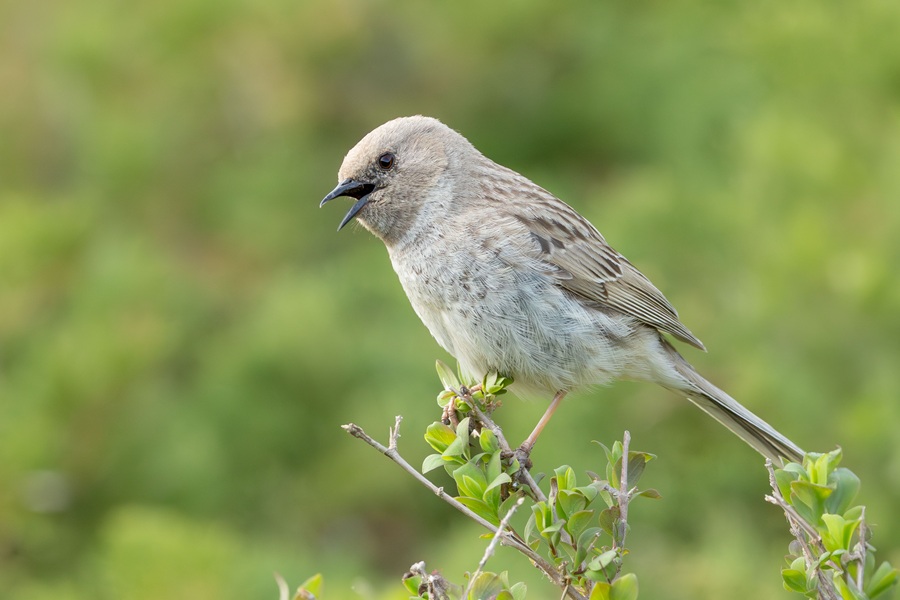

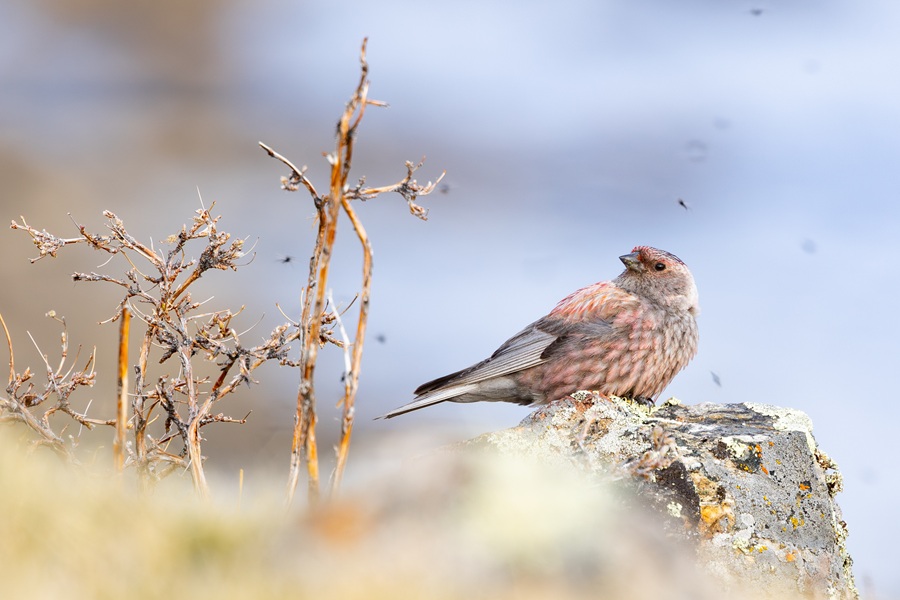

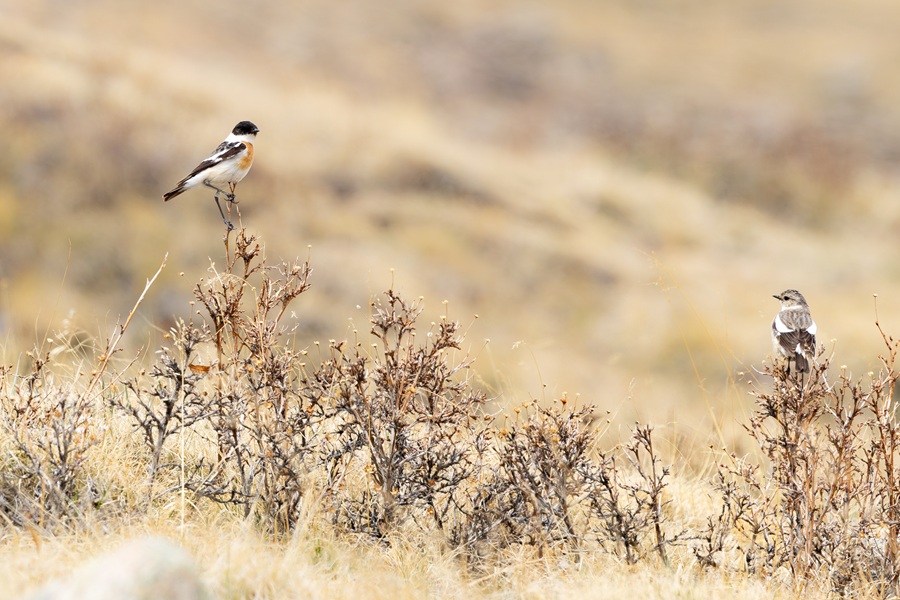

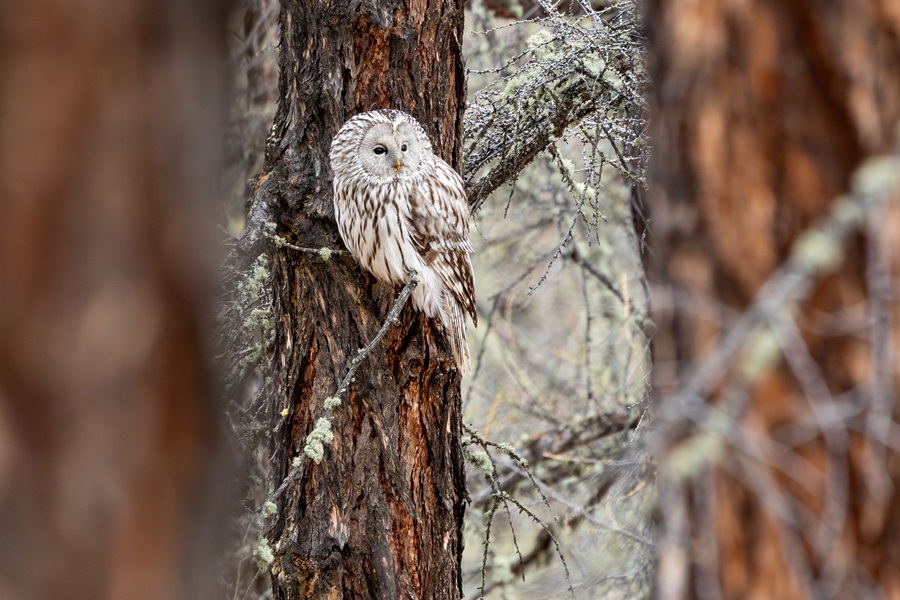

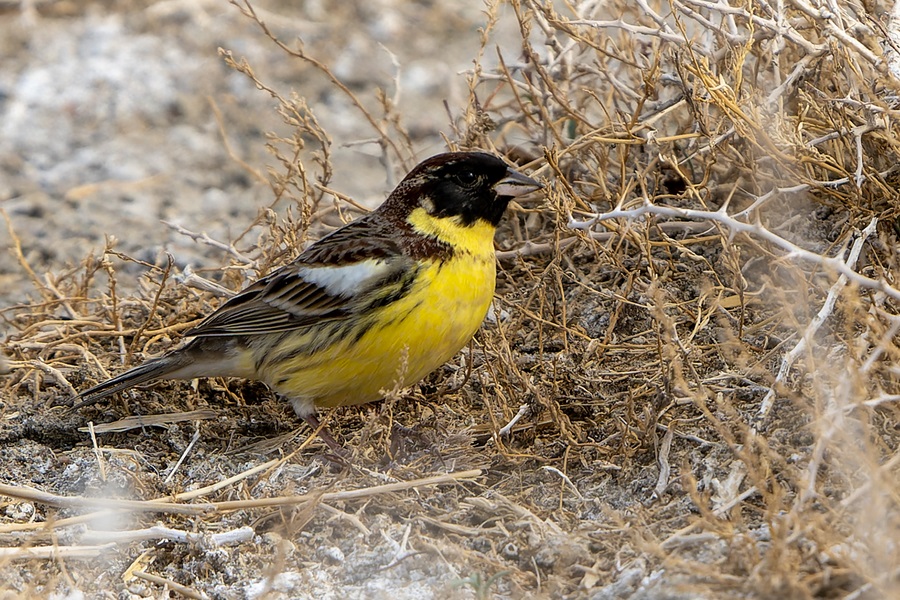

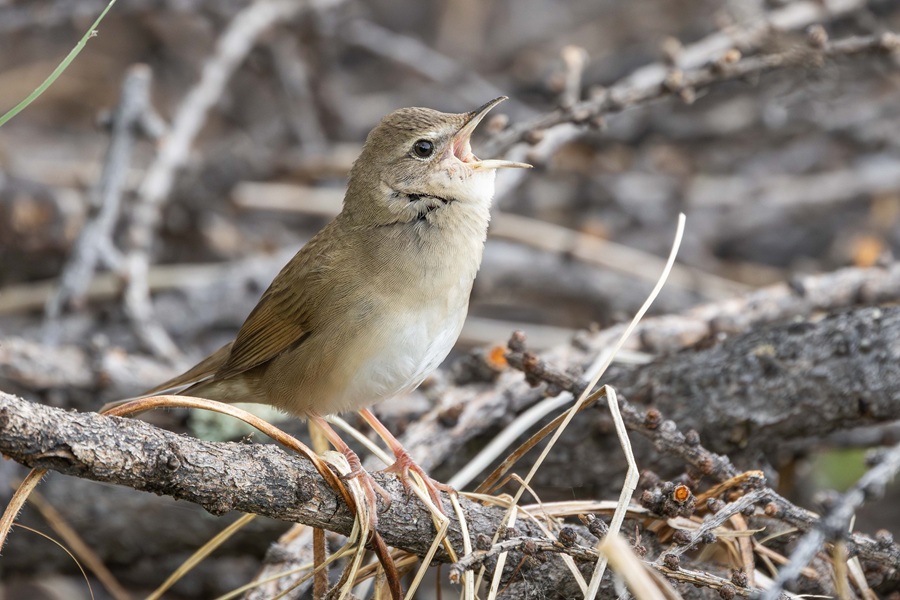
.jpg)
.jpeg)



